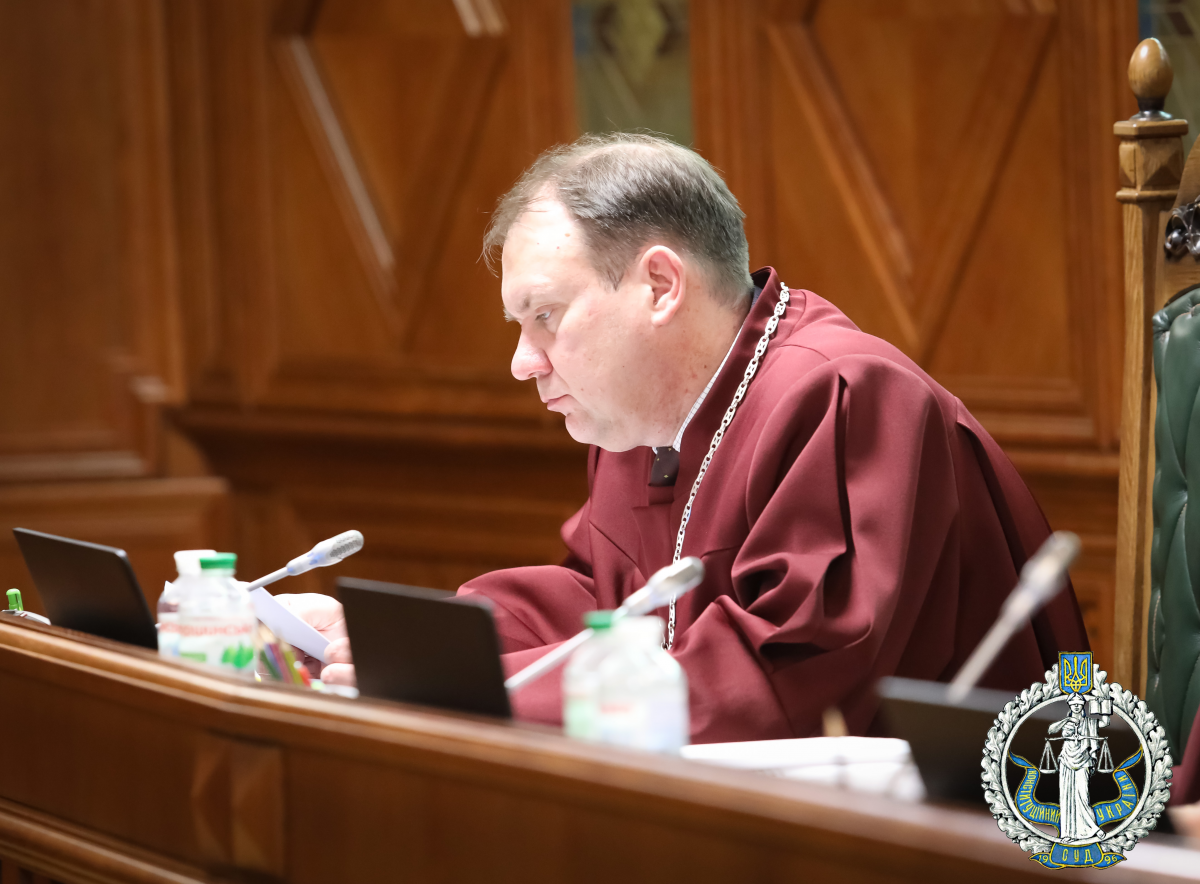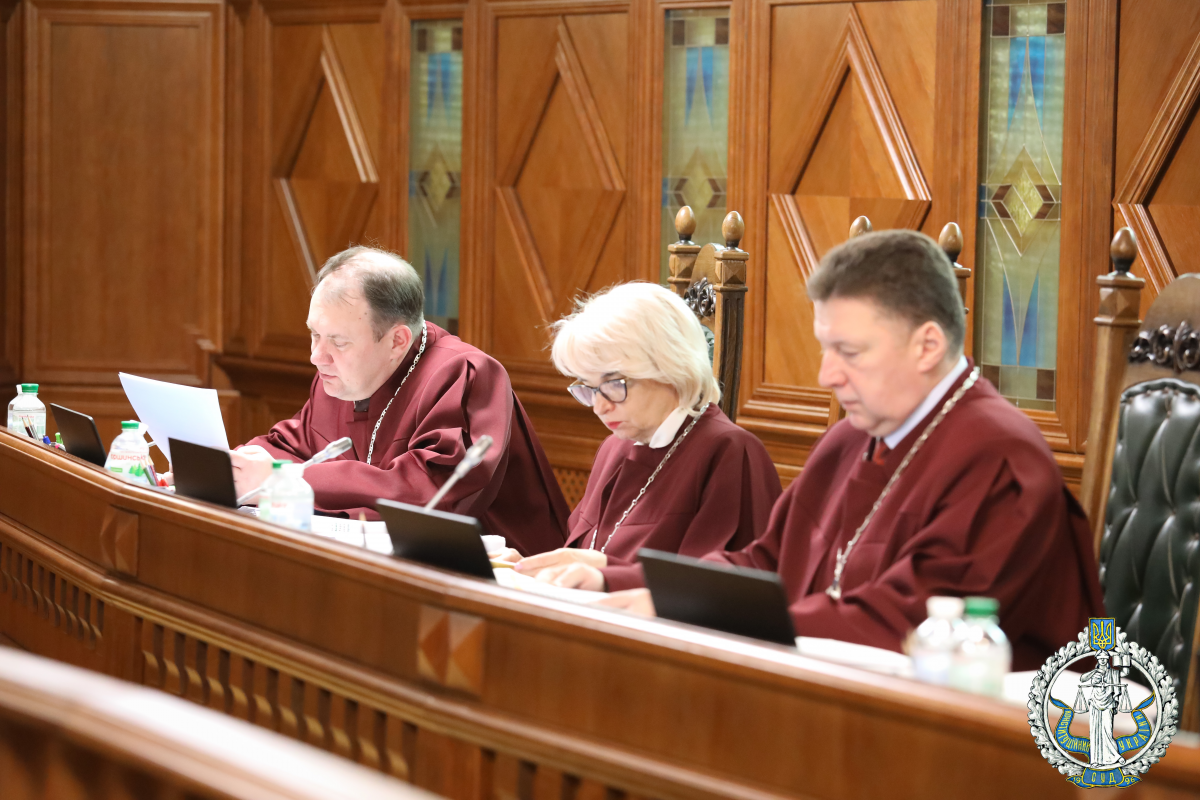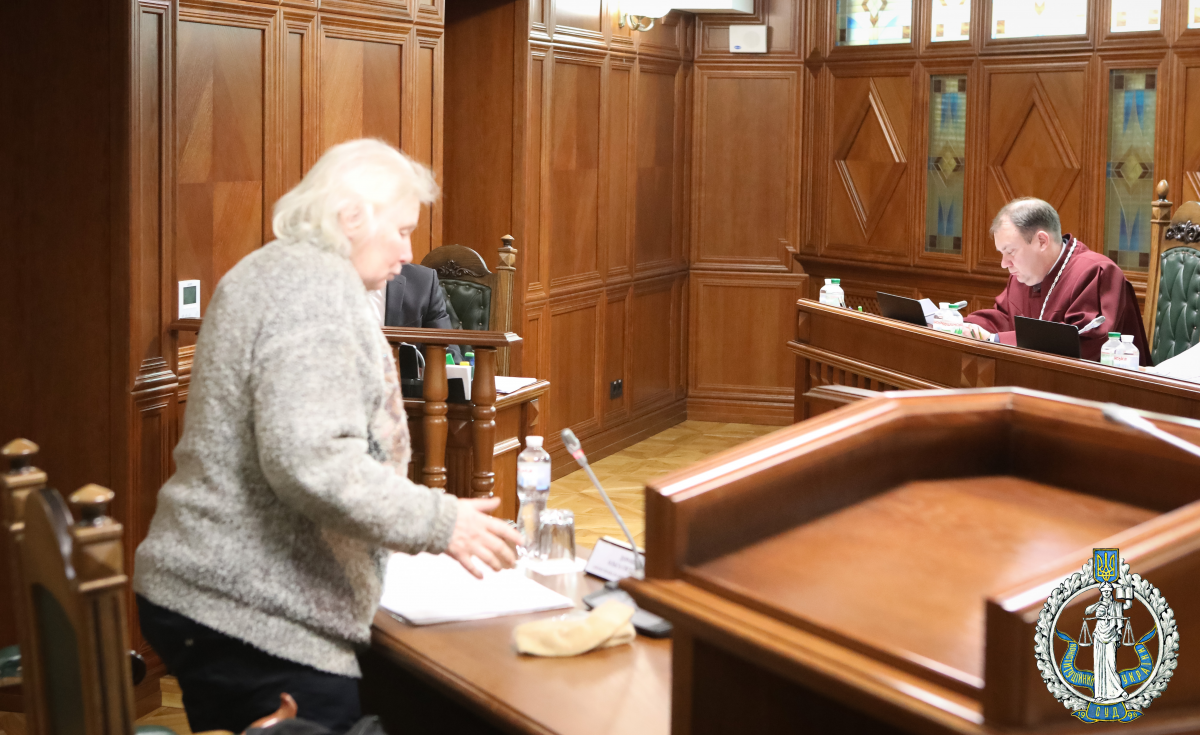1 March 2023
On Wednesday, 1 March, the Second Senate at the public part of plenary session in the form of written proceedings deliberated the case upon the constitutional complaints of Olha Doroshko and Ivan Kushaba on conformity of clauses 1 and 5 of Article 19.6, and clause 2 of Article 389.2 of the Code of Civil Procedure of Ukraine (hereinafter – the Code) with the Constitution of Ukraine.
During the plenary session the judge-rapporteur in the case Oleh Pervomaiskyi outlined the content of the constitutional complaints and the substantiation of the applicants.
He noted that the issues raised in the constitutional complaints relate to the institution of a minor case, which affects the peculiarities of the court proceedings, in particular, access to the court of cassation.
So, according to Article 19.6 of the Code, for the purposes of this Code, minor cases shall be: "cases in which the value of the claim does not exceed one hundred minimum subsistence levels for able-bodied persons; cases on protection of consumer rights in which the value of the claim does not exceed two hundred and fifty minimum subsistence levels for able-bodied persons" (clauses 1, 5).
Pursuant to the first paragraph of Article 389.3.2 of the Code, "court decisions in minor cases and in cases with the value of the claim not exceeding two hundred and fifty minimum subsistence levels for able-bodied persons" shall not be subjected to cassation appeal.
The judge-rapporteur noted that the complainants believe that the contested provisions of the Code do not comply with a number of provisions of the Constitution of Ukraine. He quoted the positions of the applicants set out in the constitutional complaints. In particular, according to O. Doroshko, the fact that Article 19.6 of the Code singles out a number of so-called "minor cases" from the general cases depending on the value of the claim, category of the case, subject matter of the case, and the subsequent deprivation of the participants in such cases of almost all judicial procedures by the court is a real discrimination and violates the constitutional right to equal access to justice, which is ensured not only by the initation of proceedings, but also by judicial procedures.
In the constitutional complaint, the applicant also states that "in “minor” cases there is no trial at all, that is, there is neither public hearing, and publicity of the trial, nor fair trial, honour and dignity, that is, there is no access to justice at all".
According to I. Kushaba, the disputed provision of the Code "violates the equality of citizens, since some citizens whose claim’s value exceeds two hundred and fifty subsistence minimums for able-bodied persons have the right to appeal in cassation, while a pensioner who barely survives on a meager pension is deprived of such right" and so on.
The judge informed that when examining the issues raised in the constitutional complaints, he, as a judge-rapporteur in the case, had sent several inquiries with questions, in particular, to the President of Ukraine, the Verkhovna Rada of Ukraine, the Ukrainian Parliament Commissioner for Human Rights and a number of academic establishments and institutions with a request to express their positions.
_____________________
The same day, the Second Senate, at the public part of the plenary session, in the form of written proceedings considered the case upon the constitutional complaint of Natalia Tryhub regarding the constitutionality of Article 44.2.2 of the Law of Ukraine "On State Market Supervision and Control of Non-Food Products" No. 2735-VI dated December 2, 2010 (hereinafter - the Law).
As noted by the judge-rapporteur in the case, Oleh Pervomaiskyi, the applicant filed a complaint with the Constitutional Court of Ukraine to check the compliance of the disputed provision of the Law, which establishes that a person who has put products in circulation or is deemed to have put products in circulation in accordance with the Law shall be subject to administrative and economic sanctions in the form of a fine in the event of "putting in circulation of products that do not meet the established requirements (except in cases as provided for in Articles 28 and 29.3 of this Law) - in the amount of three thousand non-taxable minimum incomes, and for repeated commission of the same violation within a period of one to three years for which a person has already been fined - in the amount of six thousand non-taxable minimum incomes" with the Constitution of Ukraine.
The complainant believes that the amount of liability established by Article 44.2.2 of the Law "is non-alternative and does not depend on the nature of the unlawful act committed, the form of guilt, the characteristics of the person guilty of commiting the offense, the possibility of compensation for the damage caused, the existence of circumstances mitigating or aggravating liability, etc.", therefore, the application of "the disputed prescription does not ensure a fair balance between the requirements of the public interest and the protection of the right to property of a person", which does not comply with Article 41.1 and 61.2 of the Constitution of Ukraine.
The judge-rapporteur also informed that he had sent inquiries to public authorities and academic institutions regarding the issues raised in the constitutional complaint and asked them to express their positions.
The Second Senate proceeded to the in-camera part of the plenary sessions for decisions.
The sessions were attended by the Permanent Representative of the Verkhovna Rada of Ukraine to the Constitutional Court of Ukraine Maksym Dyrdin and the subject of the right to constitutional complaint Olha Doroshko.
The public parts of the plenary sessions can be viewed on the official website of the Court in "Archive of video broadcasts of the Court".




